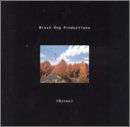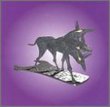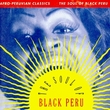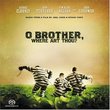| All Artists: Black Dog Production Title: Bytes Members Wishing: 1 Total Copies: 0 Label: Tvt Release Date: 6/25/1993 Genres: Dance & Electronic, Special Interest, Pop Styles: Ambient, Electronica, IDM, Techno, Experimental Music, Dance Pop Number of Discs: 1 SwapaCD Credits: 1 UPC: 016581720527 |
Search - Black Dog Production :: Bytes
 | Black Dog Production Bytes Genres: Dance & Electronic, Special Interest, Pop
Bytes is another classic album from Warp's sadly missed Artificial Intelligence series, coming from the hearts and minds of Black Dog Productions, a London-based musical collective and techno commune. At the time, their Di... more » |
Larger Image |
CD DetailsSynopsis
Amazon.com Bytes is another classic album from Warp's sadly missed Artificial Intelligence series, coming from the hearts and minds of Black Dog Productions, a London-based musical collective and techno commune. At the time, their Discordian approach to electronic music bridged the gap between club-based techno enthusiasts and bedroom-based computer geeks. The combination of Ken Downie's fetish for Egyptian iconography and Arabic music with the mighty production talents of Ed Handey and Andy Turner (who later went on their own as Plaid) produced quite an engaging album; Bytes took the repetitive and atmospheric sounds of European techno and disrupted them with intricate polyrhythms and abstract melodies, breaking out of the 4/4 mould and embodying the spirit of jazz without coming across as snobbish or excessively complex. --Matthew Corwine Similar CDs
Similarly Requested CDs |
CD ReviewsTimeless electronica barks again 0=0 | Earth | 07/01/2005 (5 out of 5 stars) "Probably one of the most underrated releases from the Warp Records catalog, Black Dog Productions' "Bytes" is a classic piece of golden-era ambient-techno from start to finish. It's great to see Warp reissuing this cd along with other gems from the early ninties "intelligent techno"/"electronic listening music" boom. The original release through Warp and WaxTrax in the states has been in regular rotation in my cd player since it came out here in the states over a decade ago. And still, it seems like yesterday since I first heard it. This is another utterly timeless piece of rhythmic electronica chock full of colorful melodies both optimistic and melancholy. It is at once highly danceable yet suited nicely for home or car listening. Much of the music on this, and other early Black Dog/Black Dog Productions releases was obviously inspired by original stateside techno from the mid-to-late eighties and early ninties, especially by Detriot Godfathers Derrick May and Carl Craig. "Bytes" is the first of the three Black Dog full-lengths (when they were still a trio) and is arguably their best , spanning a diverse yet cohesive range in moods and tempos. Due to artistic differences, the three-headed canine force known mostly as "the Black Dog" split up in the mid-ninties with founder Ken Downey keeping the name and keeping a generally low profile, and Ed Handley and Andy Turner sticking with their excellent former side-project known as "Plaid". The packaging differs slightly from the original stateside release in that the graphics are crisper and more colorful with a few extra logos and details printed on the back. I've yet to actually pick up the reissue but assume the sound quality has improved (though the original's really never suffered in any way to begin with). Black Dog's "Bytes" is a very electronic recording with a very human element at its core, posessing more character and sounding more emotional and alive than most rock or pop music being released today." A pretty good early techno album. Angry Mofo | 03/01/2004 (4 out of 5 stars) "The album does feel a bit dated, I'm afraid. There's a primitive feel to the production; the drums sound really artificial and the bass, when it's audible, has the tinny, bleeping sound associated with early techno. Because not all early techno albums sound like this, I would venture a completely unfounded guess that this is because Black Dog decided to go digital as early as possible. In the early nineties, this was doubtless a very forward-looking thing to do (like someone pointed out, the band members even have e-mail addresses - like, whoa, man!), but as a result, Bytes now exhibits obvious limitations, while other albums of the time that were recorded on analogue equipment can be reacted to in pretty much the same way as when they were released. Early MOD music suffers from the same drawback.But production isn't everything, as I usually say when talking about electronica records. It's all about the songs, man, and this album sure contains some of those. The best tracks here have a refreshing, pristine sound that calls to mind the alpine landscape pictured on the cover; the best melodies have the feeling of walking around on a clear, breezy morning, with no destination in mind, and admiring nature. "Caz" is built on lovely synth-string melodies that actually benefit from the production - they sound just a little strained, but therein lies their charm. "Carceres Et Novum" starts off with an arresting, ghostly keyboard melody that I would have liked to see expanded into a whole track; of course it's soon subsumed by pounding drums, but soon some droning bass and a piano solo, of all things, are layered on top of them. "Focus Mel" plays short keyboard pulses against more drawn-out synthesizer textures in the background. These tracks develop slowly, but they don't stop developing, and they gradually draw one into a feeling of distant, cool melancholy.The above three tracks are all arranged in a row at the very start, right after the pretty decent dancefloor opener "Object Orient," so the beginning of the album is very strong. But then comes "Olivine," which is just a repetition of one single little keyboard line for five minutes, and two more tracks later, just when the album kind of starts to regain its momentum, a very bad track called "Fight The Hits" kills it stone dead. In this track, the only non-percussive instrument is some kind of distortion that sounds like someone rhythmically dragging a giant piece of furniture across a room. Ten years since, whatever point this was supposed to make is good and lost. Fortunately, the album closes on a really high note, with "3/4 Heart," which has more harmonious synth-strings, and even an acoustic guitar towards the end. Also, the album contains seven short musical vignettes entitled "Phil." These are used as interludes in between the longer tracks, and they're actually quite good, adding some variety to the album.Many reviews of this album mention the "polyrhythms," and indeed, the drum tracks here are not your average house beats. They're intricate, layered, and very prominent throughout the album. This can get a little overbearing sometimes - the melodies on the album are calm and reflective, and not very well suited to a whole wall of thumping drums, hissing, processed cymbals, and chirping bass, all going at some unusual time signature. The rhythms might be complex, but the very uniformity of this approach detracts from their originality, because nearly every single track has this kind of percussive craziness, without many breaks or much variance in tempo, sound and volume. The band put too much emphasis on this side of things, I think; aside from the drum tracks, there are good musical ideas kicking around on this album, as well as what rock journalists refer to as "hooks," but one can't help but think that the album would be much better if those ideas were taken even further. Every time I listen to Bytes, I like the good parts more and more, and I gradually become inured to the weaker parts, but I still think that excising at least "Fight The Hits," and probably "Olivine" as well, would make the record drag a lot less. Fifty-odd minutes, after all, is a perfectly reasonable length for an album, and there's no reason to make it longer if there just isn't enough good material. Ultimately, though, it may say a lot that the album is as good as it is, since it was never meant to be a cohesive statement - all of these songs started out as singles released independently of one another under different aliases.Over time, Bytes has accrued the reputation of a lost classic, an early techno masterpiece from back in the day. Though out of print, it gets its share of name-checking and referencing, and sometimes makes surprise appearances on magazines' lists of the best techno albums ever. This might be due to the fact that two-thirds of Black Dog Productions later set out under the name Plaid, and garnered some critical acclaim. Additionally, Black Dog happened to be recording just as Warp Records, today the premier label for electronica, was getting started. At the time, Warp came out with a compilation called Artificial Intelligence, designed to promote the label as the place for the most groundbreaking new electronica, and followed it up with a series of albums by artists who appeared on that compilation. Bytes was third in this series, so perhaps the album's status has something to do with being at the right place at the right time. Still, the praise it has received is far from undeserved; if you see it in a used CD bin somewhere, by all means pick it up." Foundational Sam | Hawaii | 03/14/2009 (5 out of 5 stars) "Bytes is now 16 years old and still defies categorization and pines for an unknownable future and a mystical past. Devotees of The Black Dog, pre- or post-fragmentation have leant to an unspecific definition of The Black Dog. The sound is ancient and futuristic. The sound is neither trance, techno, nor ambient. It is hard, while smooth and slick. It is magical and mechanical. Above all else, it is spiritual, yet iconoclastic. The Black Dog has created and maintained its own classification that continues to resist definition. Listen to Olivine or Object Orient or Psil-cosyin on Spanners and let me know if you disagree. Bytes should appeal to a wide audience who can lift thier perspective above pop and lays the foundation for the very enjoyable undefinable that comes in later years."
|

 Track Listings (11) - Disc #1
Track Listings (11) - Disc #1



